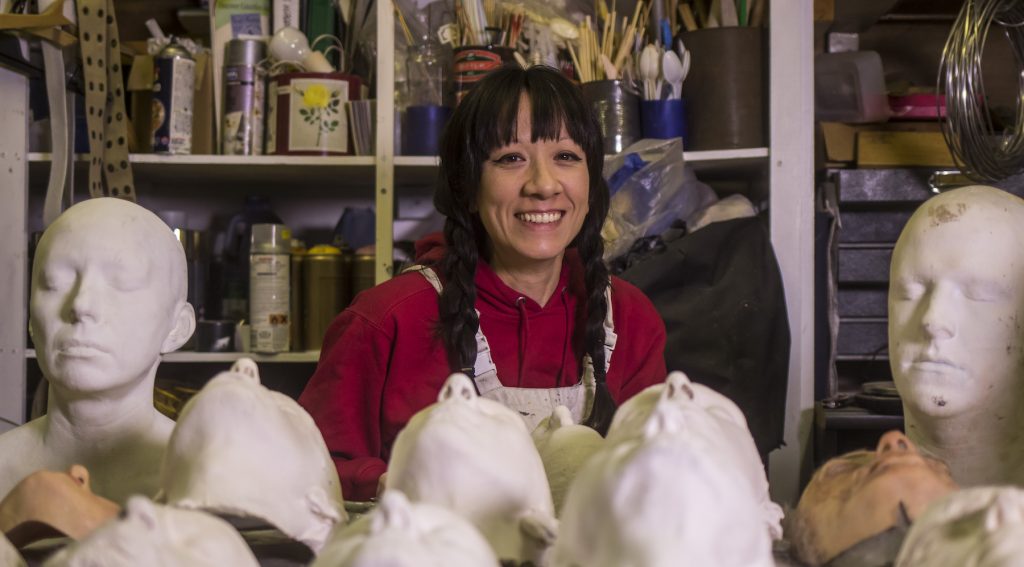From taking people around the dark streets of London in search of ghosts to producing the special effects that make our blood curdle in horror movies, these three people are all in business of making us scared. But what do their jobs involve and how and why did they get into the industry?
Natasha, Tech-effect costume designer and model-maker
What do you do?
Mostly tech-effects and prosthetics, but I do about five people’s jobs, and that’s quite rare, a lot of people just want to do one thing. So… I actually do everything… but sometimes it’s quite good to separate, and depending on who your client is or who you’re talking to, you’re only that one thing… so if I’m up for a make-up commercial for Chanel, I’m not going to show them my severed heads!
How did you get into this?
Since watching Blue Peter (a long-running children's show on UK TV) as a kid, and just making stuff out of anything. My mum and dad are both really artistic, my mum was an amazing potter, and my dad was a scenic artist, so I always had paint and clay around. I used to go to the theater with my dad. So yeah, I’ve always had it in the blood. My grandma was a seamstress, so I’ve always been used to using lots of materials and using lots of methods to make stuff. I used to make my own costumes, making costumes for my dolls, and I managed to make a career out of it. So yeah, I love my glue gun. I always thought, you know, maybe I’ll try and be an artist, but I quite like having a brief, so I’ve ended up working in a lot of advertising campaigns and music videos. Obviously I have my own ideas, but I really like having a brief and then injecting your own artistic license into it. So yeah, it’s come naturally.
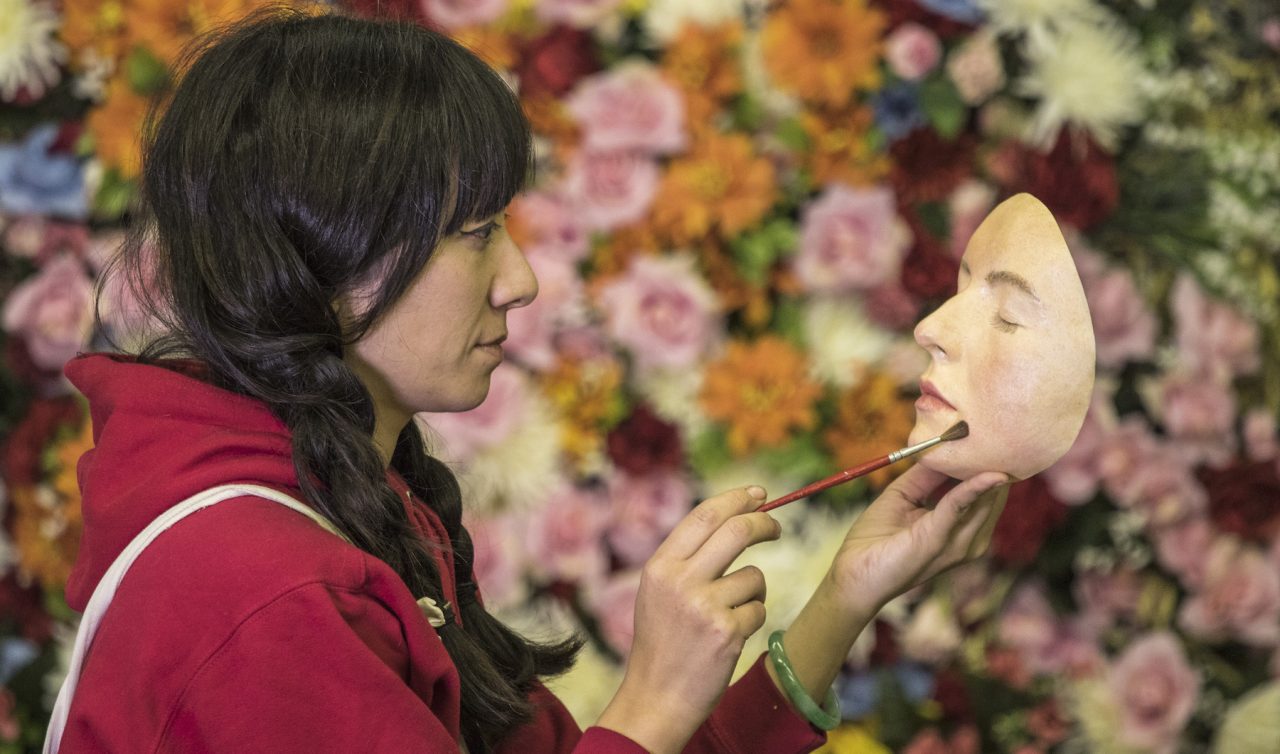
Who asks for horror related projects?
I suppose there’s demand everywhere. I get asked to do quite weird jobs. People like weird things, don’t they? They like something that’s a bit different, or maybe a bit shocking. It’s just interesting, I think it excites people. So I get demands from all sorts of categories, advertising, music videos, shows, performances, some music artists want to play it safe and others want to be shocking on stage, so… there’s demand everywhere, I think.
What's the weirdest job you've ever done?
I’ve done so many weird things... One of the weirdest jobs I had to do, I had to make a Mongolian death worm for the Discovery Channel. It was a program called Ten Top Ways To Catch A Monster, obviously they didn’t have real footage of a Mongolian death worm that shoots electricity out of his nose and kills people. So I had to recreate this worm, and it was just literally the tip of it coming out of the ground, and rubble around it. The tip was about as tall as me, and I had this stomach puncher, I created like an alien that came out of the worm, but I had to puppeteer it, so I was inside this worm, wriggling around, and I nearly suffocated...
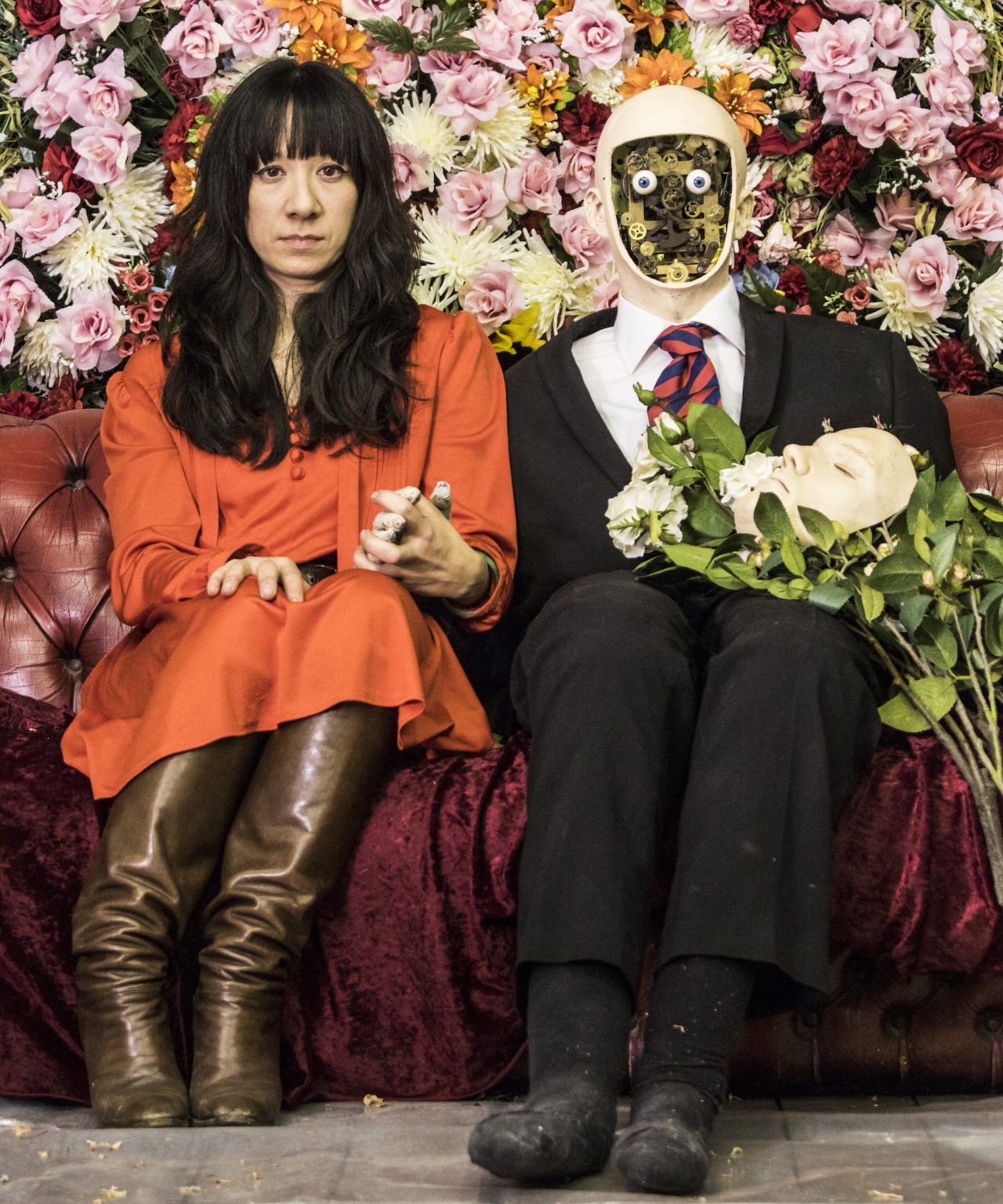
What’s your goal when you’re working on a project?
I’m quite perfectionist, but I realize that with time restrictions and budget you just have to do the job and let it go, let your Mongolian death worm go into the stratosphere and move on to the next job. I do really get excited about it, every single time, I get excited about creating something that works, that functions, that the client is happy with, that I’m happy with, and that grosses people out, if it’s supposed to be gross. When people come and say "Oh, it’s disgusting" then I know I’ve done a good job!
Karen, London Ghost Walks tour guide
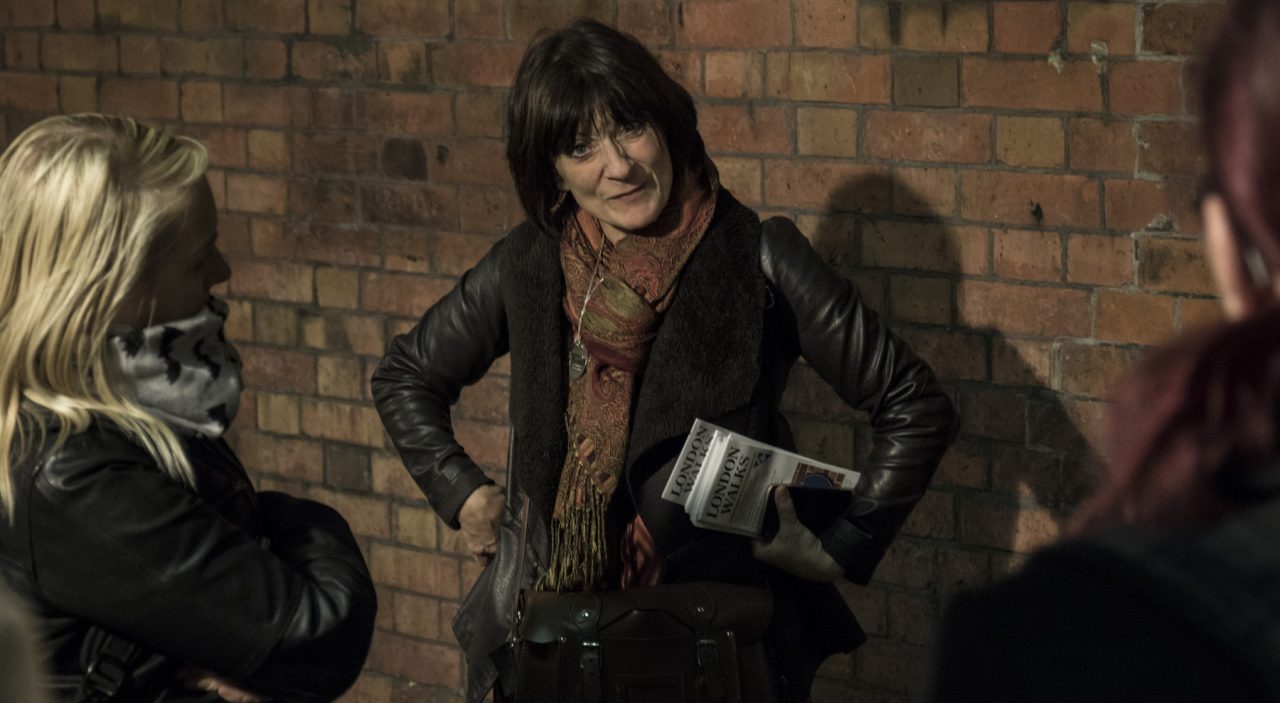
What is a Ghost Walk?
Well, it depends on your belief system, and how in touch you are with the supernatural. But if there’s any truth to the idea that buildings retain the energy of those who lived and died within them, then here, in the old part of London, the old city, the likelihood is that, if there are any ghosts, they’re here. The more souls that have been wandered the streets over the centuries, the more likely it is that they’re trapped in a parallel universe somewhere.
How did you get into this?
Well, I suppose, ghost stories are about telling histories. But a lot of the stories in this particular area are rooted in fact, and that always makes it a more authentic proposition for people, and you often find that the stories that are rooted in fact, you know, there’s no smoke without fire, so who’s to say that there isn’t the Black Dog of Newgate appearing at dusk on the foundations of the old prison?
I’m a tour guide, and I think one of the fascinations with London for a lot of people is its age and, you know, people say that London is one of the most haunted cities in the world, and perhaps that goes with the age of the place, so people want ghost stories.
Where do you find all these stories?
The way London Walks works is, you learn a walk from another guide, who’s learned it from another guide, so it’s storytelling being passed on. There are books on ghost walks, but the ones we tend to do are told by other guides, and each guide will have a different set of ghost stories that they might use. It's freelance, so you're kind of out there by yourself, but you work for a company that employs several tour guides, and you do get to know each other, and you do get together and swap stories. And I think there's something of the sort of travelling minstrel, and you’re dealing with people that are wanting to learn something or have an experience. So you’re not trying to teach people something that they don’t want to know, so actually it’s a really lovely job, usually.
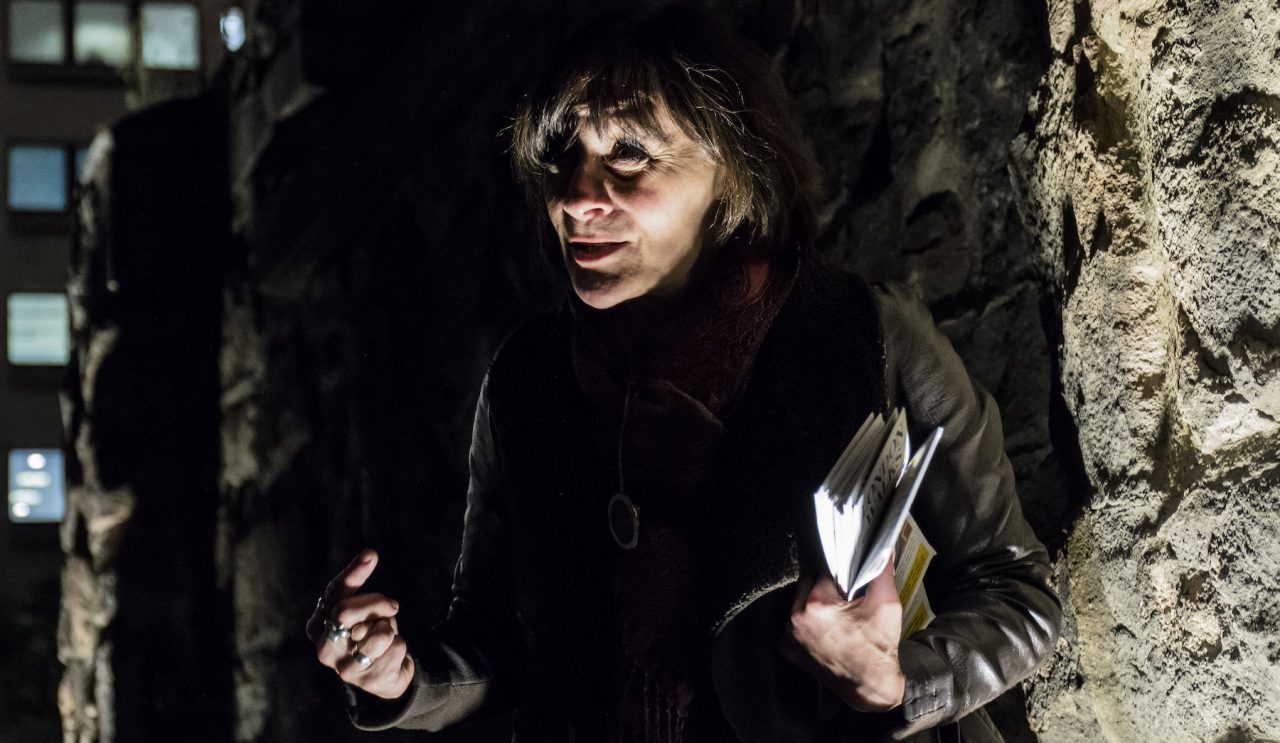
You do tours all over London. Which is your favourite?
At the moment, I’m doing a tour called ‘Inside Covent Garden’, which goes inside some of the established buildings that you might have missed. So it’s quite nice, it’s like going backstage in a theater. Buildings that you might have passed while too busy shopping, you might look again and see them in different way having actually been in there. That often happens, once you’ve been into the place, it gives you a completely different perspective on the exterior.
Why do you think people come to a ghost tour?
I think they want to believe, or they want to be scared, or they want to be in some way unsettled by the experience. It’s really not my job to say whether there are ghosts or not… our customers tend to be people who take it with a certain sense of humor.
It’s what we don’t know that perhaps fascinates us, and as much as people like to be cynical, you often get people not really being quite sure if what they saw was real or not, and that’s perhaps what keeps people coming back.
I think human beings are attracted to the macabre. It’s the same as going on the rollercoaster ride, really, there’s a thrill to it. One of the most popular walks in London is the 'Jack the Ripper Trail', it attracts hundreds of people nightly, so I think there’s a fascination with the darker side. It’s dramatic, it’s intriguing, it perhaps taps into people’s fears. It’s something that we can all immediately recognize and relate to.
Ruth, Taxidermist and special effects make-up artist
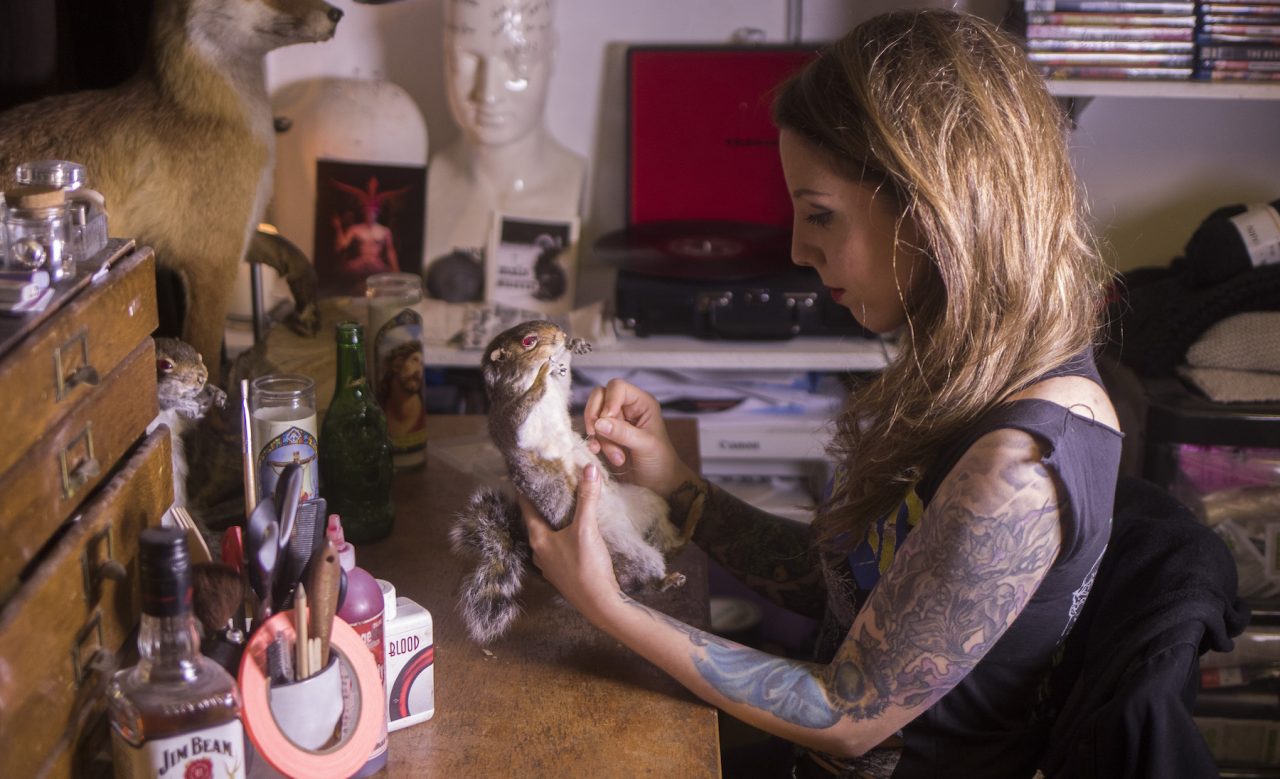
What types of jobs do you do?
I make prosthetics, and normally I'm on set applying them and dealing with the particular effect on the shoot, mainly for low budget projects.
So if there’s a scene where there’s someone getting a limb cut off, you’re the one behind it?
Yeah, I’m the one with the syringe or blood pump, pumping away, going "Oh my god, I hope this works, I hope it looks good" and not knowing what it's actually looking like and hoping that it’s okay.
I'm a make-up artist predominantly, but I come from a background of horror, and that’s kind of why I do this. My aspirations were very low when I started, I just wanted to blow up melon heads and tear off plastic limbs and stuff… So, I do everything now, but my passion is always going to be more with horror than anything else. That’s what I predominantly love doing, prosthetic injuries, creating monsters, and that kind of thing.
It’s interesting being a woman working in horror and special effects, because that gets appreciated quite a lot. For example, I work with a couple of female directors (Prano Bailey-Bond and Melanie Light) who work pretty much solely in horror and are amazing. People realize that I’m very enthusiastic about horror and normally get me involved in their projects because of that.
One of the greatest influences for me starting out was Evil Dead, and at the time I thought "God, how great would it be to be involved something like that, just running around the woods..." And then, as I grew older and gained more experience, I realized the absolute stress of what it really involves. But there’s something that makes me crave the original horror scenario, being stuck in the woods. I don’t mind suffering for it and I kind of like the whole process, it being cold and unpleasant. With this last short film we did for Channel 4, we were up until six in the morning, just shooting all night, on this weird race track thing, and I stood in a bush with all these blood pumps, and urine pumps, and all this other shit going on, and I was like, "Yeah! This is what I signed up for!"
Where did you learn all the tricks?
It comes from loving horror. You buy all the books, you watch all the behind-the-scenes stuff, and read all the magazines. A lot of it, you just have to learn on the job, and it’s changing all the time. And there are things that you can use that are homemade, and you just figure it out by actually doing it. It’s just trial and error lots of the time. Although, I used to want to be a mortician, and that’s way harder. So make-up effects is kind of the easier way to do that, rather than spend ages trying to be a doctor.
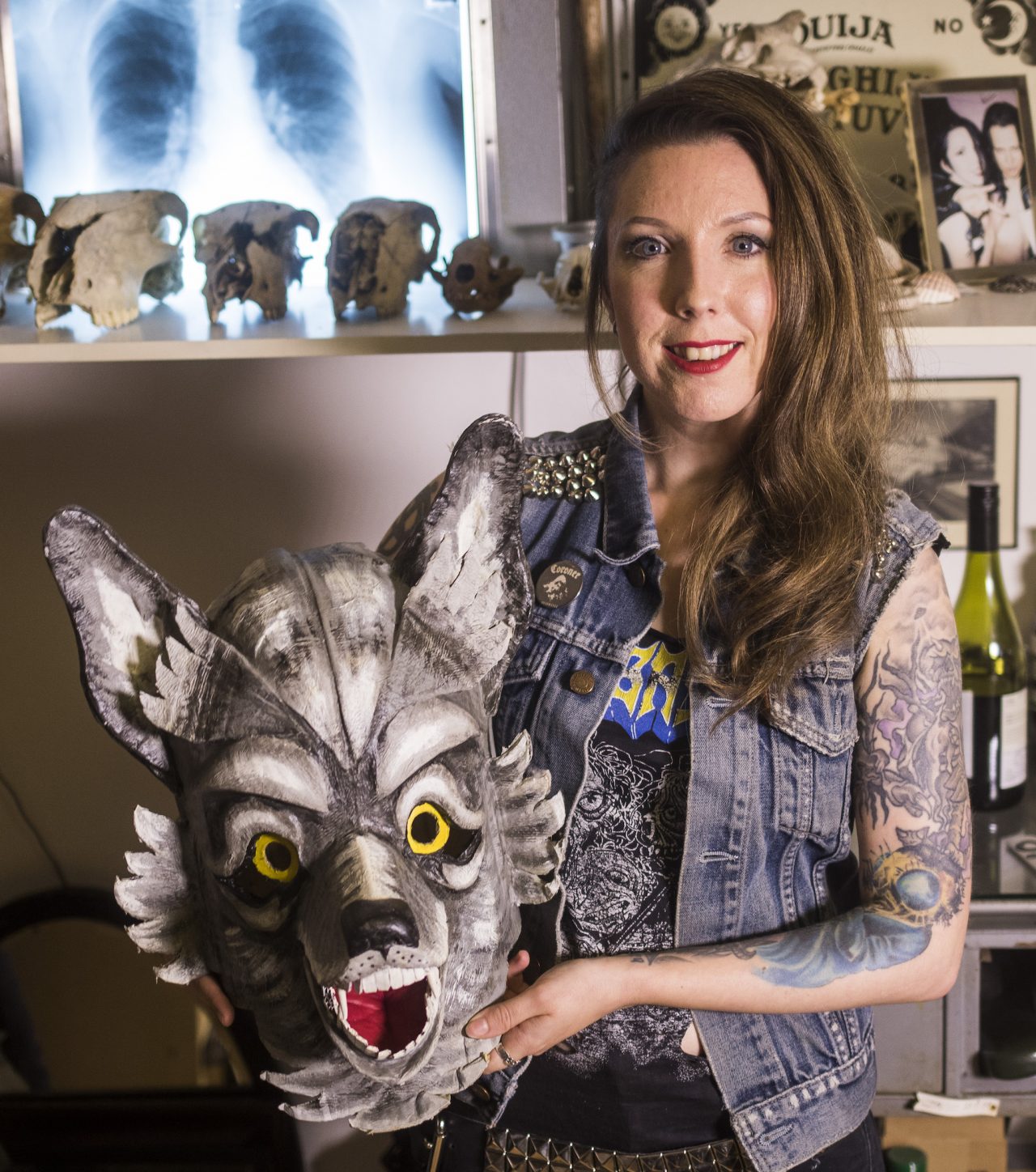
How did you get into this job?
I knew I wanted to work in films, and I did Film Studies A-level and wrote a couple of shorts during that time, and then my best friend started doing a prosthetics course, and I realized that that was the way to do it, because the idea of my day job being to cut off limbs, to blow people up and to throw blood around… I was like "God, if I could make a living off that, that’d be the best job in the world!"
From there I went and did a course at London College of Fashion in Film and TV Make-Up Design, and started off from there. But I’ve always been very involved in the horror community and I’ve always gone to the conventions. It’s really helpful to be a part of the community, because that’s where a lot of the filmmakers are, and that’s where you make your big connections. So, genuinely loving it is really important, I think. You kind of have to, because it’s torture.
What is it about horror that makes it so interesting to you?
It’s almost like a rite of passage thing when you’re young, it’s a very dangerous thing, and it’s exciting. But it also comes from this kind of acceptance that everybody has of their dark side, so I think for me it was very real and very cathartic, and important in growing up.
It was a really important part of coming to terms with death as well, and understanding that. I just think it’s very important to have a sense of humor about it, and a way to deal with mortality, to understand it without it being this really awful heavy thing that you have to carry around with you. It’s an important form of art, and it does reflect current moods and things that people need to get out of them.
It's considered a very childlike thing and looked down upon, but everyone is excited by this stuff. There’s a certain amount of denial in this. I actually think that I’m less of a weirdo for being really comfortable with my mortality, and being surrounded by it. It’s by making it a taboo topic and not being able to talk about it that it actually becomes problematic.
Is taxidermy related to this?
Yeah, well, I’ve always been incredibly morbid, always interested in True Crime, in serial killers… But the taxidermy thing, it came from a genuine love of taxidermy and it being so expensive, and going "Ok, I love this, but I can’t really afford it… maybe i can start making it. That’s where it came from." And also, the idea that I could then transfer that into film and TV and hire it out, and link those two things together. So when a film came up when they wanted a taxidermy squirrel, it was like "Wow, my world makes sense! Great!"
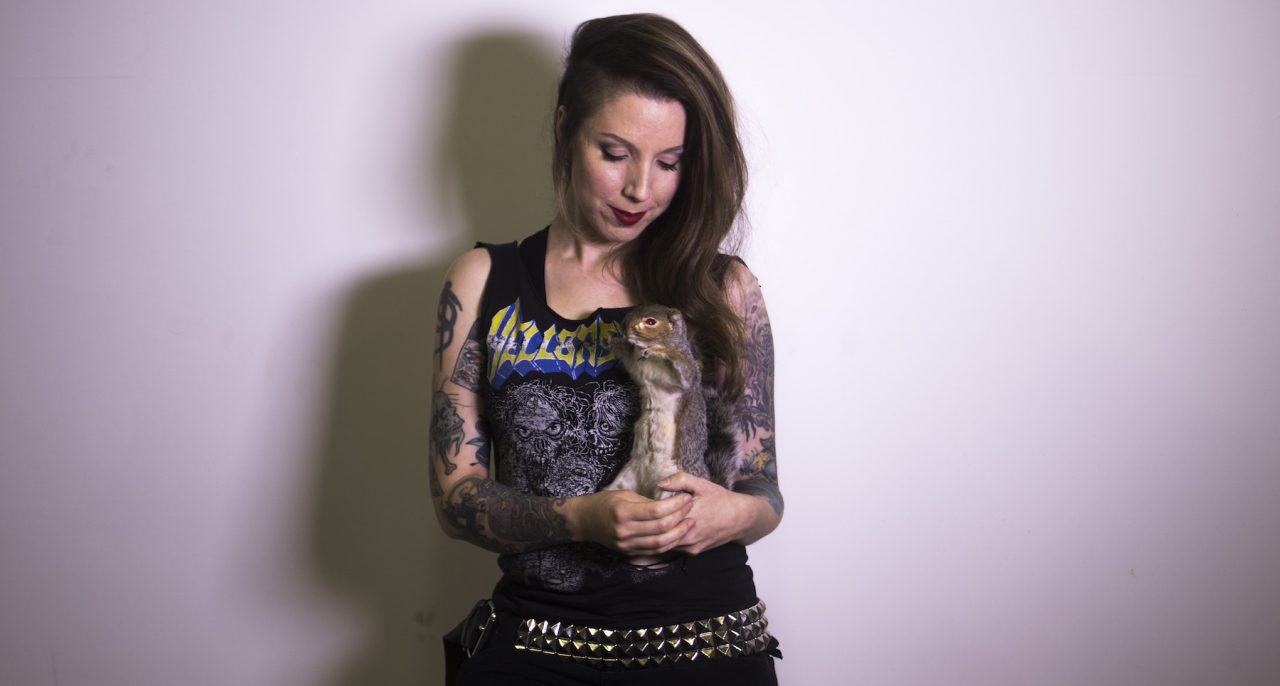
What first got you into horror?
I grew up in the middle of nowhere, and all me and my sister had to do was go to our local video store. We grew up in the 'video nasty' era, and that became everything to us. All of our friends would get together, you'd make friends with all these weird market sellers who'd sell these really bad VHS bootleg of blockbuster movies, and you had to gain their trust over weeks and buy shit films that you didn’t want… Eventually when they trusted you they’d bring up this folder, that was full of banned VHS, and you'd pick off this list and spend like £20 ($25) between you, and get, like, Zombie Holocaust, or Face of Death, and all go around to someone’s house and watch it all together. So it’s very romanticized, and it was a very important part of growing up. It was like a weird education, that when I decided what I wanted to do, all became very useful.
Is there also an element of nostalgia behind this passion?
Yeah, very much so! I was born in 1982, which was a great year for horror as well. There was this weird comfort to it, and it became a very comforting thing, being able to go around someone’s house, have people around you and experience that at the same time…
Today it’s difficult for anything to be shocking. Now everything is so available to you. For me, growing up in that era and actually seeing films like The Texas Chainsaw Massacre available to buy on the shelf was shocking to me. It was so bizarre, it was so weird. Many people were literally going to jail, and it was ruining their lives, I had friends who dealt in video nasties, and they had their houses raided, it was a very real thing…
I don’t know, it’s almost sad now that it’s so available, it’s taken away all the danger… and also, when you watch the bootlegged copy of a film that you were told was really dangerous, possibly even real, it was always the grainiest, worst quality, so seeing it in this crystal-clear blu-ray takes away all the nostalgia and romanticism about it. Now they're just regular films.
Check out the rest of Economy Explores: Horror




